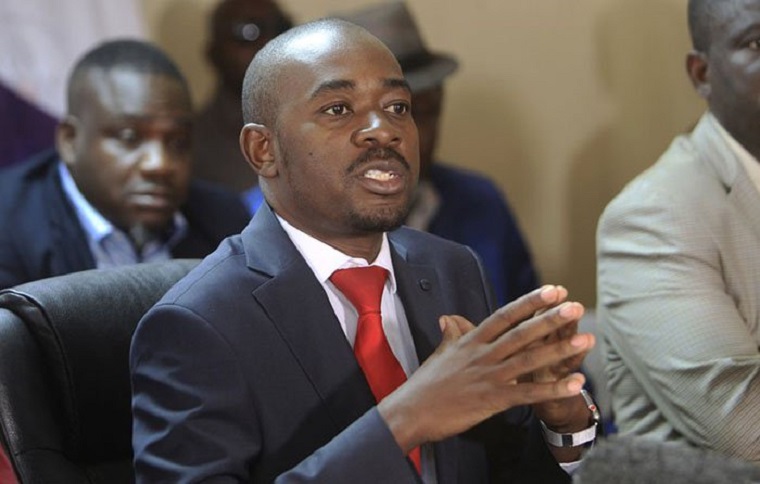 Movement for Democratic Change leader Nelson Chamisa, whose party did not attend yesterday’s launch of the Political Actors Dialogue in Harare, today rubbished all political settlements Zimbabwe has entered into including the Lancaster House Agreement which ushered the country’s independence.
Movement for Democratic Change leader Nelson Chamisa, whose party did not attend yesterday’s launch of the Political Actors Dialogue in Harare, today rubbished all political settlements Zimbabwe has entered into including the Lancaster House Agreement which ushered the country’s independence.
Chamisa, whose leadership of the opposition party was declared unconstitutional by the High Court, today tweeted: “Zimbabwe’s crisis is political. We have’nt had genuine & true political settlement since the days of Lancaster, Unity accord and GPA GNU.
“Deceptive, manipulative politics upon fake dialogue is the source of all our national discohesion. This breeds false, disputed & rigged processes,” he said.
The MDC says President Emmerson Mnangagwa, who officially opened the POLAD dialogue, is literally talking to himself by excluding the Chamisa-led party.
Chamisa has refused to recognise Mnangagwa as the President of the country claiming that he won last year’s elections but was robbed by the Zimbabwe Electoral Commission though he lost the case at the Constitutional Court.
The Zimbabwe African National Union-Patriotic Front says its leader will not talk to Chamisa until he recognises Mnangagwa as the country’s legitimate president.
Chamisa seems to have been buoyed by sentiments by South Africa’s ambassador to Zimbabwe Mphakama Mbete and commented: “We welcome the wise words by the South African Ambassador Mphakama Mbete. He said, ‘..the national dialogue must be inclusive & participatory & take into account the views of all Zimbabweans’. We restate that dialogue can’t be credible when it ignores the views of 2.6m voters.”
The MDC leader claims to have polled 2.6 million voters in last year’s elections, a point he failed to prove in court. According to the election results he got 2.1 million votes.
Chamisa backed the idea of an external facilitator, saying: “His Excellency Mbete also said, ‘…if necessary for credibility, the leadership of Zimbabwe wishes to consider a facilitator from outside Zimbabwe, we as a region will be ready to propose names from the African Continent’. We’ve said this from day 1 & called 4 such a mediator.”
He also agreed with Mbete’s sentiment that “…the success of a national dialogue will have far reaching implications for the SADC region and beyond”.
“This is what we have always said that stolen elections have a negative impact on the welfare of all SADC citizens, they repulse investment,” Chamisa said.
Mbete’s comments have been interpreted differently by various media depending on which side they support. The United States propaganda radio, Voice of America, said South Africa had called for an external mediator.
NewZimbabwe.Com said that the diplomatic community had appealed with MDC leader Nelson Chamisa to unconditionally join the political parties dialogue platform.
“At this point we would like to appeal to the political formations, to the political leaders who are not a part of this dialogue to join the national dialogue,” it quoted Mbete as saying.
In his speech yesterday, Mnangagwa said that: “Dialogue, like charity, begins at home, and will enable us to speak with one voice as the re-engagement with other nations gathers pace.”
In remarks that seemed to be targeted at Chamisa, Mnangagwa said: “History has proved that in order for a nation to meaningfully pursue its reform and transformation agenda, the energy that comes with electioneering must of necessity be re-directed to issues of national development over the period leading to the next election.
“It does not serve any purpose to continue in an election mode when citizens are yearning for socio-economic transformation and development.”
(193 VIEWS)






0 Comments